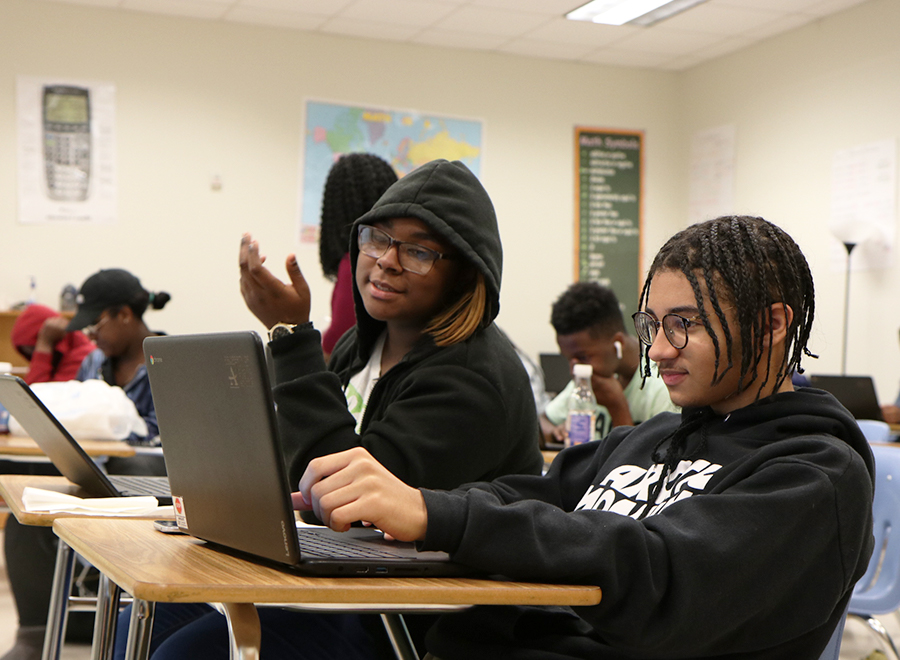
Your Students Are People Too
As a veteran educator, I’ve gotten used to fielding questions like, “Why does this matter? When will I ever use this in the real world?”. When I was a health and physical education teacher, answers to these questions were easy.
From accurately taking your pulse, knowing signs of a heart attack, how to eat nutritionally balanced meals, to even mental and emotional health, topics covered in my Health and Physical Education classes were relevant not only to students’ current lives but their future lives as well. I would regularly respond in class: I don’t care if you want to be a doctor, lawyer, engineer, pilot, or work in customer service. If you don’t understand how your body functions and do not make your personal health a priority, you probably will not reach many of your long-term goals and career aspirations.
Nowadays, I teach computer science and answering those questions is a little trickier.
A few weeks ago, while students were working independently on a binary assignment, a student approached my desk. Thinking she wanted to ask a question about binary, I pulled up the assignment to glance over a part that might be giving her trouble. She instead sighed and said:
"Can you tell me why an education is so important when my school feels like a prison? I'm always only taught history about white people, and I'm always forced to do what I'm told."
My eyes got big and I shifted in my chair a bit, completely surprised by this question, especially coming from a standout student.
I proceeded to share with her more about the educational system and affirm the concerns she expressed with her question. I referenced some books and articles that addressed topics we discussed, even bringing my personal copy of “Pedagogy of the Oppressed” by Paulo Freire the next class meeting for her to have.
We talked for the remainder of class discussing school, a bit about her social and home life, and even the current political climate as well. Yes, she and I did not engage solely in computer science content that class period, but I’m fine with it. Giving students space and time where they can feel human, safe, and have their voice heard is just as important, if not more important, than any content we would be covering that day.
Constellations in its current form is an outstanding avenue and chance to really shake up and disrupt the status quo in computer science education, not only in Georgia but eventually nationwide. However, in integrating a hybrid model for teaching computer science, it is very important that we remember to provide a humanizing experience for students in our classes as well.
The conversation with my student reminded me of this important fact. In order to connect, foster learning, and be relevant to students, no matter the content area, care, love, and community must exist in our classrooms.
As my colleagues at the Constellations Center and I continue the process of shifting mindsets, research, and democratizing computer science for Black and Latinx students, we are also working to prioritize the humanity of our students within our classrooms. We must show students that our Constellations computer science classes are a safe haven. While in our classes they should not feel like they are in prisons, they are being over policed, nor required to mindlessly comply. They should know that when they walk into a Constellations classroom that it is a safe and inclusive learning space where they will be exposed to rigorous college-like courses and also be challenged to grow and improve upon their academic, interpersonal, and soft skills.
Additionally, we must include a committed mindfulness in regards to representation. We must demonstrate that representation matters through our classroom speech as well as the materials and lessons we have students complete. It is our belief at Constellations that quality and robust computer science curriculum and classes distributed equitably in all schools, not just the ones with certain student body demographics or socioeconomic status, gives all students a chance to peer into the windows of possibility and obtain optimal learning outcomes in high school and beyond.
Although our conversation was brief, it was powerful. Within this recent thirty minute conversation with one of my students, I was reminded of the broad scope of my work as a Constellations fellow.
As an educator, I cannot logically expect for marginalized groups of students to reciprocate the same care, attention, and effort towards an educational system that historically has not and continues to not remotely do the same for them. Constellations cannot become like most school settings, so data-driven and in some ways myopic, that we forget we are still actively impacting individual human lives in our classrooms every day. We must always remain mindful that we are not saviors and that computer science will not save students.
Computer science can be leveraged to offer opportunity, hope, and care to students who currently navigate school spaces that show them otherwise. In our aim to democratize computer science for all students, we must also remain mindful that we play a part in humanizing and dignifying the educational experience for our students too. We must always remember that important part of this work.



